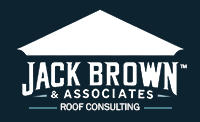FAQs and Related Links
FAQS
Related Links
-
IIBEC
IIBEC, Incorporated is an international association of professional consultants, architects, and engineers who specialize in the specification and design of roofing, waterproofing and exterior wall systems.
-
FRSA
FRSA is an association of roofing, sheet metal and air conditioning contractors and industry- related companies including manufacturers, suppliers, manufacturers’ representatives, roofing consultants and others.
-
INTERNATIONAL CODE COUNCIL
The International Code Council (ICC) is a membership association dedicated to building safety and fire prevention. ICC develops the codes and standards used to construct residential and commercial buildings, including homes and schools
-
TRI
TITLE ROOFING INSTITUTE
The TRI is a non-profit association of producers and associates of clay and concrete tile and is considered one of the leading experts in the industry.
-
NATIONAL ROOFING CONTRACTORS ASSOCIATIONS
NRCA is one of the construction industry’s most respected trade associations and the voice and leading authority in the roofing industry for information, education, technology and advocacy.
-
CONSTRUCTION SPECIFICATIONS INSTITUTE
CSI is a national association of commercial-level construction professionals dedicated to improving construction communication through:
Developing standards & formats, including Master Format 2004 and Green Format. Certifying professionals who work with construction documentation Offering rich continuing education for the broad audience of professionals affected by construction documentation.
CSI is unique in the industry in that its members are a cross section of specifiers, architects, engineers, contractors, owners, facility managers, building materials suppliers, and others who are touched by construction documentation.






